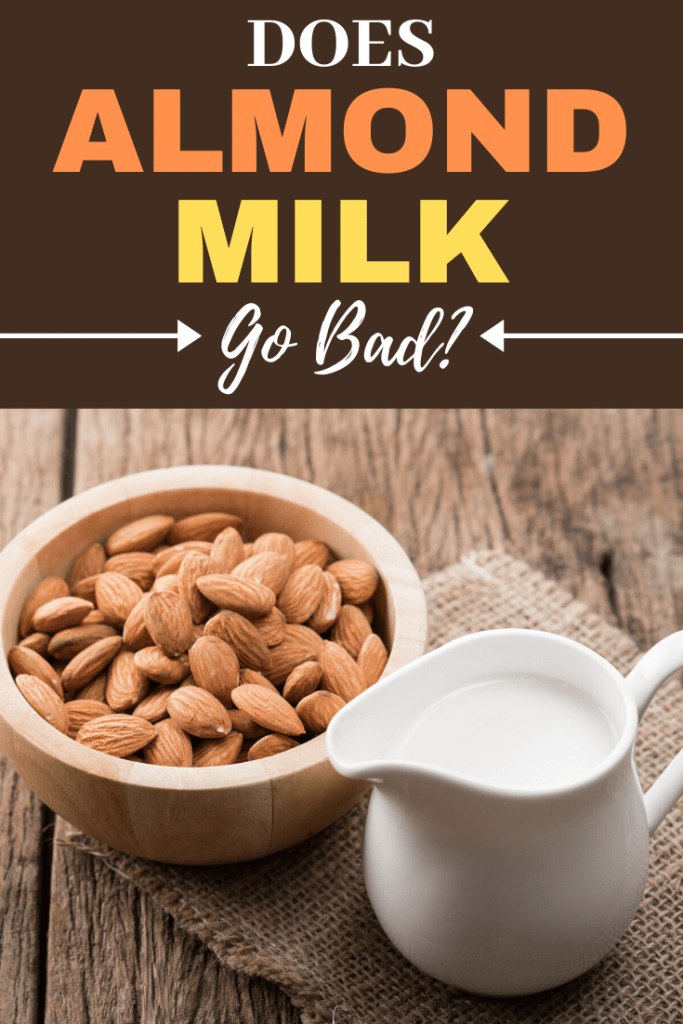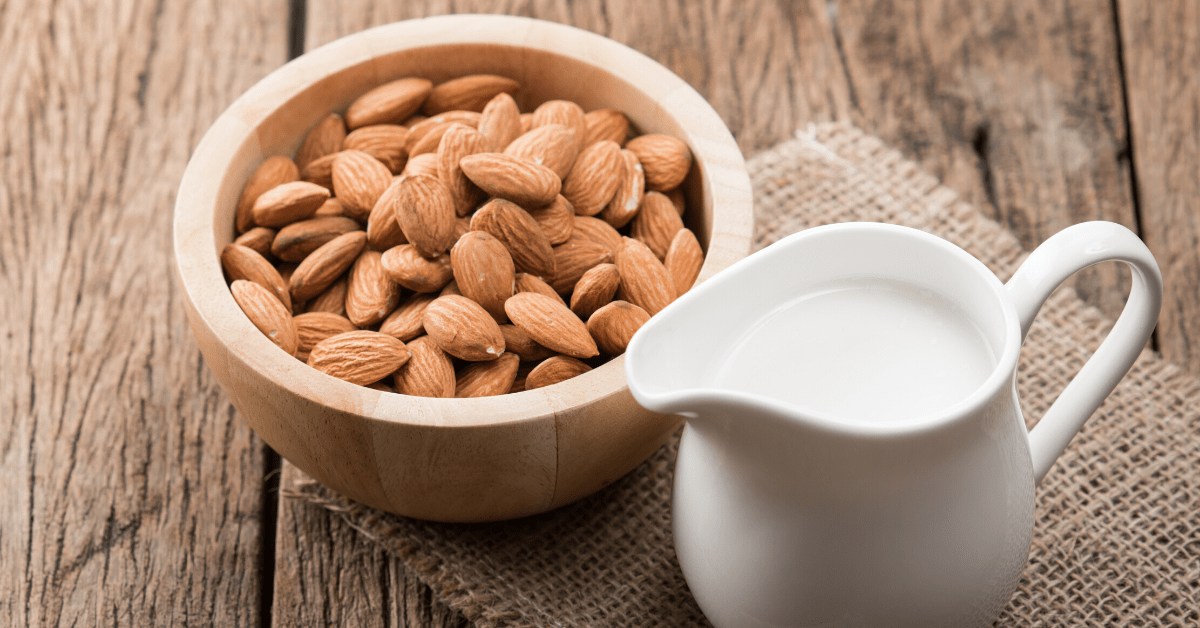Almond milk is a smooth, silky, sweet, and healthy alternative to regular milk. But is it safe to buy this nut-based beverage in bulk? Or does it go bad just as fast as cow milk does?
Almond milk does last a little longer than regular milk. But it certainly will go bad after a certain period of time.
The shelf life also varies based on the type of almond milk you purchase. Some brands are refrigerated, while others aren’t. And of course, you can also make homemade almond milk right in your kitchen.
But… how long will each variety last?
Read on for everything you need to know about almond milk – from shelf-life to storage tips to checking for freshness.

How to Store Almond Milk?
The first thing you need to know is that there are two types of almond milk: refrigerated and unrefrigerated. It’s important to tell these two kinds apart because their storage needs are different.
Unrefrigerated or shelf-stable almond milk does not have to be stored in the fridge. Much like coconut milk, it’s okay to leave an unopened carton in a dark and cool area away from heat. The pantry or kitchen cabinet are both perfect candidates for the job. But once you’ve opened the carton, be sure to refrigerate it.
Refrigerated almond milk, on the other hand, has to stay in the fridge even when unopened. So be sure to refrigerate it as soon as you bring it home from the grocery.
It’s also smart to not keep them near the door, since that’s the warmest section of the fridge and the temperature fluctuates more often. Keep your almond milk near the back of the fridge, as that’s the coldest and most stable area.
Now, if you’re not sure what kind of almond milk you bought, try to remember which area you got it from at the store. If the almond milk is stored in the refrigerated section, it means you have to keep it in the fridge upon purchase. If you got it from the shelf, it means you can store it in your pantry or cabinet.
For homemade almond milk, be sure to refrigerate at all times.
Now, you may wonder if almond milk is safe to freeze. There is some debate going on around this topic, but most people recommend against it. Once you defrost frozen almond milk, its texture changes, and not for the better.
But if you plan on using almond milk for baking or cooking, then it is perfectly fine to freeze it. You won’t really taste or feel the change in texture once you combine it with other ingredients and cook it.
How Long Does Almond Milk Last?
Almond milk always comes with a “best by” date. More often than not, an unopened carton of shelf-stable almond milk will keep well up to 2-4 weeks past that date. Once opened, however, it will only survive for about 7 to 10 days in the fridge.
Refrigerated almond milk doesn’t last as long. Every carton comes with a “use-by” date, which you should follow more strictly. An unopened carton will last for up to seven days past the date. Once opened, you’ll have up to a week to consume it, provided that you keep it in the fridge.
Homemade almond milk has the shortest lifespan among the three. Consume it within 3 to 4 days.
A word of warning: never leave almond milk out at room temperature overnight. If you do so by accident, don’t even bother to check if it’s still okay! Just throw it out right away.
How to Tell if Almond Milk Has Gone Bad
It’s not difficult to tell if your almond milk is no longer fresh. If you notice your carton is bloated, it’s time to get rid of it.
If you want to inspect further, you can pour half a glass and check for discoloration and lumps. If one or both is present, it’s time to go.
You can also tell by smelling the milk. If it doesn’t smell fresh anymore, throw it out.
But if you still need more proof, you can try it. If it doesn’t taste like milk anymore, even within the “best by” date, just discard it.








